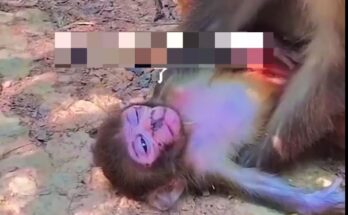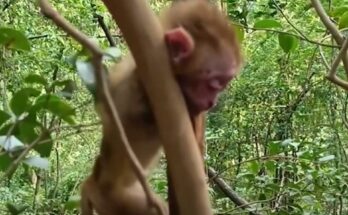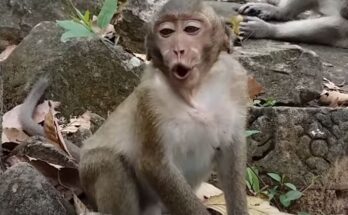The emotional dynamics between a mother monkey and her offspring can be complex, as maternal instincts often drive nurturing behaviors. However, there are instances where a mother monkey may attempt to reject her little one’s attempts to nurse. This behavior can stem from various factors, including environmental stressors, the mother’s health, or challenges in the infant’s behavior or development.
In some cases, the mother might reject nursing if she feels overwhelmed or threatened. Monkeys live in highly social and hierarchical groups, where dominance, competition, and environmental pressures can significantly affect their behavior. A mother experiencing stress due to competition for resources or social conflict might deprioritize nursing to focus on her survival. This decision, while seemingly harsh, is often rooted in the need for self-preservation and ensuring she has enough energy to protect her offspring.
The mother’s health is another crucial factor. If she is unwell or malnourished, she may not produce sufficient milk or have the energy to sustain frequent nursing. Rejecting the infant’s attempts to feed could be a consequence of her physical incapacity. Similarly, the rejection may occur if the infant exhibits signs of illness or weakness, as some animals instinctively prioritize the survival of the strongest offspring to maximize reproductive success.
Another potential reason is weaning. In monkey species, mothers naturally wean their offspring as they grow older to encourage independence and prepare them for foraging. The process, while gradual in many cases, can sometimes appear abrupt if the mother determines that it’s time for her offspring to adapt to a new stage of life.
On a behavioral level, maternal rejection might also occur if the infant displays excessive clinginess or unusual behavior that the mother perceives as disruptive. Such actions can lead to the mother distancing herself temporarily to establish boundaries.
While this behavior can seem cruel from a human perspective, it is essential to understand it within the context of evolutionary biology. These actions are not driven by malice but by survival instincts and environmental adaptations. Observing such dynamics provides valuable insights into the complex relationships within animal societies. Scientists studying these interactions aim to decipher the intricate balance between nurturing and survival strategies in primates, shedding light on the evolutionary roots of maternal behavior.
4o


